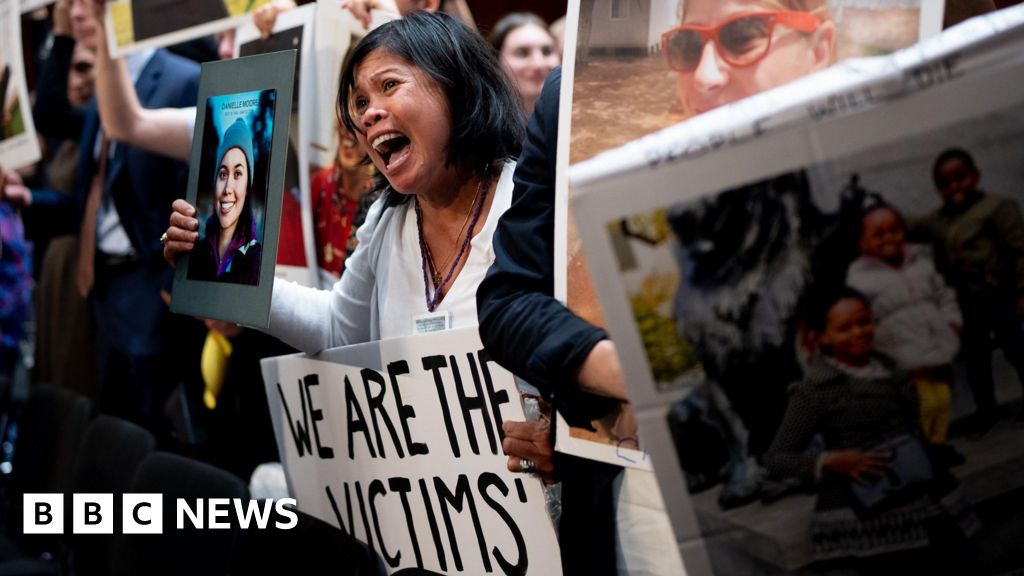But economic data shows that Black workers are faring exceptionally well: The Black unemployment rate remains near historic lows and wage gains are at all-time highs. Meanwhile, the share of Black Americans with jobs — at 59.1 — is near a peak of 60.4 percent set last year.
“There is no indication anywhere that Black workers are losing out in this economy,” said Valerie Wilson, a labor economist at Economic Policy Institute Action. “Not only do we have record high Black employment, but we’ve also seen much faster wage growth post-pandemic than for White workers.”
Wages for Black workers rose 1.4 percent between 2019 and 2023, after adjusting for inflation, Wilson said, compared with a 0.9 percent increase for Hispanic workers and 0.5 percent uptick for White workers. The White House has attributed those outsize wage gains to the fact that more Black workers have started working in high-wage industries after the pandemic.
GET CAUGHT UP
Stories to keep you informed
The U.S. job market remains exceptionally strong for all workers, thanks in part to an influx of new immigrants that have helped fill long-standing labor shortages across industries. Economists generally agree that immigration is good for the economy: It boosts the supply of available workers, but just as crucially, gins up demand for goods and services, which strengthens the economy and creates the need for new jobs.
“Most of the academic research on immigration over the decades finds that it is generally a net positive for the economy, but some studies do find job losses for low-wage workers,” said Julia Pollak, chief economist at ZipRecruiter. Still, she said, the picture is constantly in flux, especially given a U.S. population that is quickly reaching retirement age.
“The net effects are hard to measure,” she said. “It will likely be decades before there is a robust body of scholarly evidence and analysis on the effects of current immigration policies.”
The United States gained an estimated 2.5 million new immigrants last year, but Wilson said there is no evidence those newcomers took jobs away from U.S.-born workers. The unemployment rate for U.S.-born workers averaged 3.6 percent in 2023, the lowest rate on record, she said.
Trump’s assertion that immigrants are taking “Black and Hispanic jobs” led to an immediate uproar on social media. “What exactly are Black and Hispanic Jobs!?!” the NAACP’s official account asked on X.
A recent analysis by the Council of Economic Advisers found the share of Black workers in higher-paying white-collar industries such as information, financial activities and professional and business services grew between 2019 and 2013. Meanwhile, Black workers’ presence in lower-wage sectors such as leisure and hospitality and retail has decreased in that period.
Nearly half of Black workers worked in professional, management and office jobs last year, according to data from the Bureau of Labor Statistics.
“The ‘Black jobs’ terminology — that’s a nonsensical way of thinking about it,” said Kevin Rinz, a senior fellow at the Washington Center for Equitable Growth and former Census and White House economist. “People from all races and backgrounds do all types of work in the economy. There’s really no such thing as a Black job. But even if you want to look at the occupations most commonly held by Black people and those held by new Hispanic immigrants, there just isn’t a ton of overlap.”
Although the picture could change as the job market cools, labor economists say the past few years have been a time of solid gains. Black unemployment hit an all-time low during Biden’s presidency, falling to 5.1 percent in March 2023, then 4.8 percent a month later. Those readings broke the previous record of 5.3 percent set in August 2019 — when President Donald Trump often took credit for Black unemployment rates during his term — according to data by the Bureau of Labor Statistics dating to 1972.
A recent cool-down in the labor market has led to higher unemployment across the board, including for Black workers. Black unemployment inched up in May, to 6.1 percent, though it remains near historic lows.
Those job gains have translated to broader economic improvements during Biden’s presidency. The Black poverty rate fell to a record low of 17.1 percent in 2022, even as the overall poverty rate remained flat at 11.5 percent, according to the latest figures from the Census Bureau.
Lauren Kaori Gurley contributed to this report.















































